The Most Daring Movies Made By Women May Not Be Coming To A Theater Near You
BUY quality bulk Yahoo Twitter Hotmail Google Voice Facebook Accounts
BabyblueEyes1017 31yo Wenatchee, Washington, United States
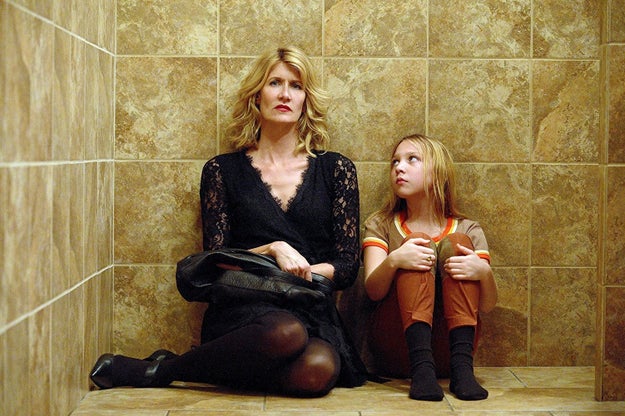
Laura Dern and Isabelle Nelisse in The Tale, which was acquired by HBO.
HBO
Harvey Weinstein attended last year’s Women’s March at the Sundance Film Festival. Weinstein walked on behalf of women's rights among the Utah locals and festival attendees that turned Park City's Main Street into a sea of pussyhats and pointedly worded signs — the same man whose decades of alleged sexual assault, harassment, coercion, and silencing of women would shake Hollywood to its core and kickstart the #MeToo movement just nine months later.
I heard repeated references to this incident at Sundance 2018, which was notably the most female-driven iteration of the festival I've ever attended, with 37% of the features directed by women — from Desiree Akhavan's young adult adaptation, The Miseducation of Cameron Post, to Alexandria Bombach's documentary portrait of a Yazidi activist, On Her Shoulders — all four directing prizes going to women, and countless panels about sexism and unconscious bias and pay parity. Weinstein's march worked both as a grim punchline about what a difference a year makes and a cautionary reminder of how little public gestures of allyship have to do with how someone really behaves.
While people once again gathered for a rally in the Park City snow, where the likes of Lena Waithe and Jane Fonda delivered rousing speeches about unity and the need to organize, there was a decidedly skeptical undercurrent throughout the festival toward performances of allyship. The tradition of saying one thing while doing another isn't new or unique to Hollywood, but it does come across as more galling in the light of #MeToo — all that talk, and the pins and T-shirts and marching, looking especially cheap without accompanying action.
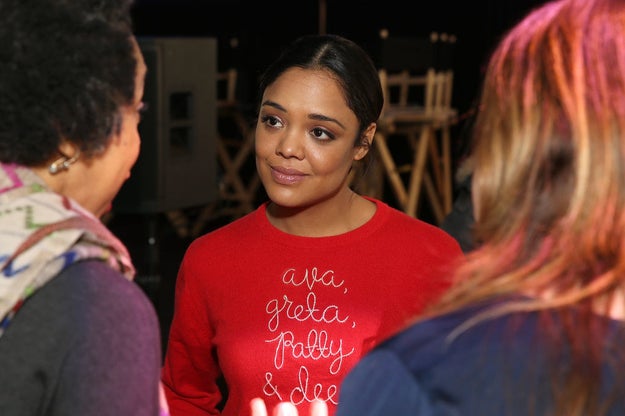
Tessa Thompson, wearing a sweater tribute to some women directors, at the Women at Sundance Brunch.
Phillip Faraone / Getty Images for Refinery29
Sexual misconduct was certainly discussed during the last week and a half (the festival even launched a hotline to which it could be reported), but the more urgent questions on everyone's minds had to do with money, and the power it has to reshape workplace culture. At the packed Women at Sundance brunch, in an eyebrow-raising reworking of Naomi Klein's concept of disaster capitalism, panelists talked about how they hoped to be able to enact "disaster feminism," using the moment as an opportunity to make inroads into systemic imbalances in the industry.
But money, until the festival approached its end, wasn't doing much flowing toward films helmed by women directors. Films were being snapped up, but it was only in the second weekend that major deals were done for women-helmed scripted fare like Leave No Trace and The Tale. This may have been a female-driven Sundance, but the narrative that started a few days in and built to an apparently firm verdict by the end was that this year’s festival was a disappointment, a down cycle, devoid of any obvious breakouts. It's hard not to see these two things as related, especially with unnamed but apparently powerful distributors tellingly grumbling to Variety, "Who are these movies for?"
Women are making movies, and some of this year's were genuinely great — but in order to get those movies seen, they have to contend with a gauntlet of distributors who make the calls on what's relatable and viable, and who, in doing so, dictate the kinds of stories that end up in theaters, and who gets to tell them. Everyone is eager to say that they support women, that they're listening to women, that it's more urgent than ever to give work and equal pay to women in addition to assuring their safety. But when it comes to taking chances on women-directed work and seeing it as commercially viable, Sundance 2018 mostly felt like a long lesson in just how far we still have to go.
If you've never been to Sundance, you may have developed a rough idea of it as a snowy wonderland of celebs, tucked into $1500 puffy coats and cashmere beanies, wandering around a small ski resort town collecting freebies from gifting suites. And this is all true in ways that are incredible to witness, but it's only part of the picture. Sundance is Hollywood's dream of its best self, a showcase for work that is, at least theoretically, made outside the system, the product of bold sensibilities and diverse voices and artistic integrity.
Every year, whole swaths of the industry gather to watch films that are meant to be the kind they'd love to make if only they weren't subjected to market pressure. And then those films are immediately subjected to market pressure, as distribution companies battle to purchase the most promising titles for theaters, for video on demand, or for streaming. Incredibly ill-advised deals have been made in the giddy high altitudes of the festival, but then influential discoveries have been made there, too — and these deals, whether they turn out to be lucrative for the company or not, are showy gestures of companies throwing their weight behind a work of art. It's why Sundance remains, even in a "quiet" year, important. It’s an event that promises to kickstart careers and allow people in from outside the industry, even if the reality turns out to be more complicated than that.
The most talked-about movies at Sundance last year — The Big Sick, Call Me by Your Name, and Mudbound — were all picked up by theatrical distributors and are all currently Oscar contenders in various categories. The most talked-about movie at Sundance this year, The Tale, will bypass theaters to premiere on HBO.
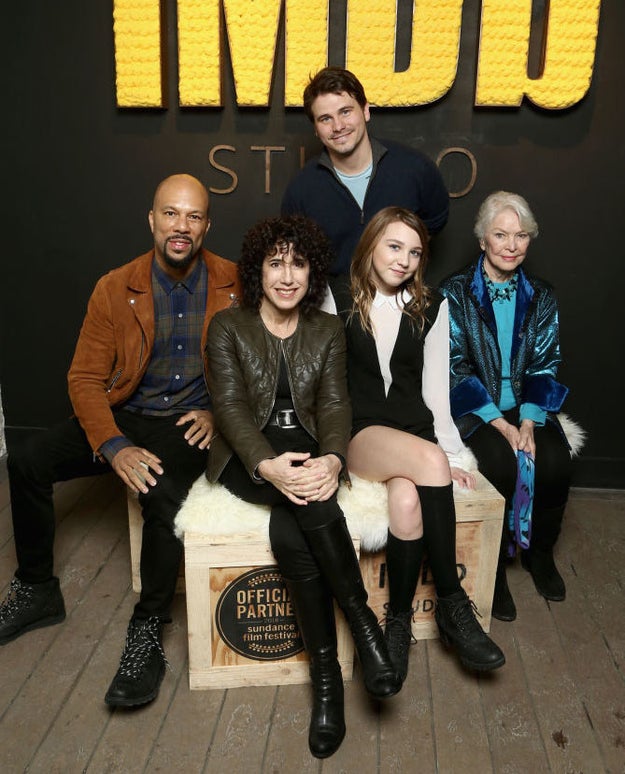
The Tale director Jennifer Fox with cast members Common, Jason Ritter, Isabelle Nelisse, and Ellen Burstyn.
Tommaso Boddi / Getty Images for IMDb
Whatever combination of bidding and filmmaker negotiations went on behind the scenes, the result was that the company that stepped up with the best deal for the film wasn't a theatrical distributor but a cable network. There's no need to relitigate pointless movies-vs.-television debates. But it does feel like a startling whiff on the part of the film studios to pass on such an ambitious prestige title, letting it go to the small screen, which has been notably much friendlier to female-driven stories and creators in recent years.
The Tale is an autobiographical drama of sexual abuse from Jennifer Fox, a documentarian making her scripted debut. Laura Dern plays an on-screen incarnation of the director, a woman who starts to question whether what she'd insisted to herself at the time was a consensual relationship was actually abuse — she was 13, and he was her 40-year-old running coach (played by Jason Ritter). The Tale slips between the past and present, depicting the unreliable nature of memory and how we use it to shield and harm ourselves by reworking history into something easier to deal with. It is #MeToo the movie, complete with power imbalances that protect and enable a predator long after his first victim has left him behind.
Perhaps The Tale is timely in the wrong way, enough to scare off buyers with its unflinching sequences of the adolescent Jennifer (played by the painfully young Isabelle Nelisse, just now 14) being groomed and eventually coerced into sex. Those scenes are no less agonizing when watched with the knowledge that they were shot using an adult body double. The movie is insistently frank about what statutory rape looks like, in direct contrast to the glossed-over version of events that older Jennifer convinced herself of. It refuses to look away from difficult scenes, and its gaze is steady and distinctively female.
Indie film is often about hawking the idea of "importance," so what film executives (and critics) relate to impacts what gets bought.
I don't want to imply that The Tale got a rough shake in being picked up by HBO, which is a huge platform that will probably put the film in front of more eyeballs than a theatrical release would, and the reported 7 million dollars paid for it makes it the second biggest deal of the festival. But it seems worth mentioning that the biggest deal, for a reported 10 million dollars, was for Sam Levinson's Assassination Nation. It's a film I didn't see and can't speak to the quality of, but it's described as a violent satire about a town that goes off the rails when a hacker starts posting its secrets online, including ones about the four teenage main characters who become targets of hate. In other words, it takes on misogyny and female revenge on a much broader, less serious scale. That there was a rush to secure the rights to Assassination Nation indicates it's not necessarily proximity to the #MeToo movement that's a red flag for buyers — "This is a film that everyone needs to see and discuss," the Russo brothers, who were part of the deal, declared in the acquisition announcement.
Rather, the problem seems to be one of perspective and approach, where the raw realness of Fox's film about her own experiences is judged as less significant than a flashy, button-pushing romp. Variety's Owen Gleiberman even went so far as to refer to The Tale as a "sketchy postmodern Lifetime movie." That's language that recalls the chick lit-ification of books by women in the publishing world; their femininity is treated as a sign that they're lightweight, disposable, and lacking in artistic substance. Indie film is often about hawking the idea of “importance,” so what film executives (and critics) relate to impacts what gets bought. And executives and critics are still not a demographically diverse group.
I have no idea who will buy my favorite film at the festival, an impressionist portrait called Madeline's Madeline, directed by Josephine Decker. Decker’s earlier output veered into the experimental, and her new movie isn't that — it has a clear story to tell — but it's not conventional, either. The story drops you into the chaotic interior life of a ferocious teenage girl with a never-specified mental illness and makes you navigate an often slippery sense of reality alongside her. The viewing experience hits you like a fist, thanks in part to the awesome intensity of its lead actor, Helena Howard, in her heavily improvised first on-screen role. As Madeline, she burns so brightly that you can see how the character compels and alarms so many people in her orbit, including her smothering mom (Miranda July) who Madeline sometimes thinks about harming, and the theater director (Molly Parker) whose rehearsals are a sanctuary until their "collaborations" start to feel vampiric.
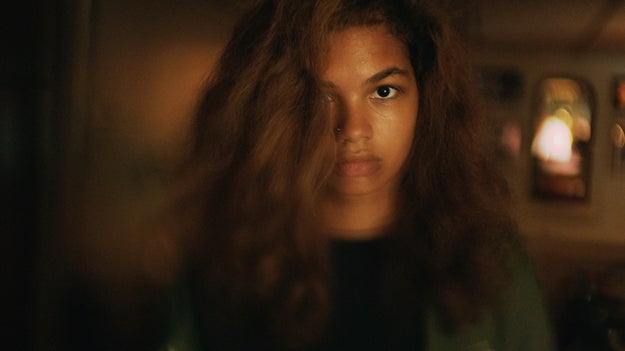
Helena Howard in Madeline's Madeline.
Courtesy of Sundance Institute
But Madeline's Madeline doesn't have an easy marketing hook. It bristles with ideas about race and class and inspiration and mental health while refusing to be a treatise on any one of those in particular, to the benefit of viewers and detriment of anyone trying to pitch it for sale. The movie is neither overtly woke enough to be presented as a movie that will teach people something, nor the product of one of the established (and near-universally male) auteurs from whom some playfulness with form is tolerated — your Paul Thomas Andersons, your Coen brothers. As a result, Madeline's Madeline might be doomed to festival purgatory. Even fans of the film at the festival seemed to talk about it as if it were already consigned to the past, a footnote in the bright career Howard seems destined to go on to have. Though even as I say this, I wonder if I haven't simply internalized the industry's cynicism about how a ticket-buying audience (or their narrow idea of one) will behave.
There are more women behind the camera, but they're still predominately white, even as casts become more diverse.
Just as mesmerizingly uncomfortable, but more straightforward, The Kindergarten Teacher at least stands a better chance of landing a bigger distributor. That’s thanks to the star at its center, Maggie Gyllenhaal, who also produced the film. The Kindergarten Teacher is a remake of an Israeli film, reworked with a Staten Island setting by writer-director Sara Colangelo. Like Madeline's Madeline, it plays around with an attentive-bordering-on-predatory relationship between an ominously well-meaning white lady (who Gyllenhaal doesn't soften one bit) and the young person of color whose bones she seems to want to suck the talent out of — in this case, a kid in her class (Parker Sevak) who she becomes convinced is a poetry prodigy. Seen in the context of the festival, that recurring motif is like a dark on-screen acknowledgement of another Sundance reality: There are more women behind the camera, but they're still — like filmmakers in the festival in general — predominantly white, even as casts become more diverse.
But while The Kindergarten Teacher leans into that anxiety, there's none of the same tension on screen at all in Skate Kitchen, another personal favorite and another film that's still waiting on distribution. Ironic, given that director Crystal Moselle's first feature, The Wolfpack, a doc about siblings who'd spent their lives locked away in an apartment, teetered right on the edge of art and exploitation. In Skate Kitchen, Moselle stumbled upon another group of highly cinematic New York City kids (a cluster of extremely hip skateboarding girls) and built a scripted movie around them, but the results feel collaborative. You forget they're mostly first-time actors because this fearless, racially diverse, sexually fluid crew of trash-talking young women feels like a convoy from a cooler future — until Jaden Smith, perfect as a stealth fuckboy, stirs up drama regarding rules about dating your friends' exes that go way, way back.
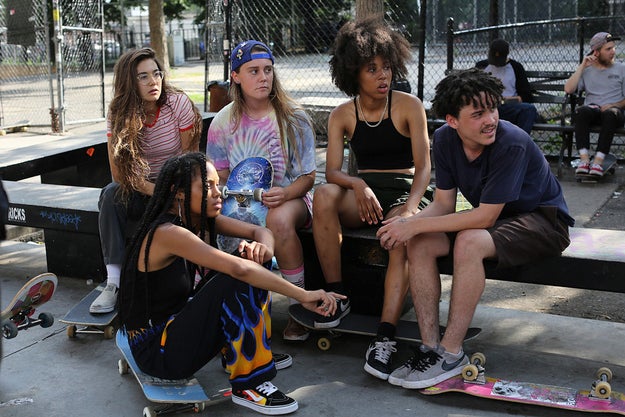
Rachelle Vinberg, Ajani Russell, Nina Moran, and Dede Lovelace in Skate Kitchen.
Courtesy of Sundance Institute
Skate Kitchen feels gratifyingly fresh, but it also could be in conversation with Larry Clark and Harmony Korine's 1995 landmark film Kids, as it revisits and reclaims some of its teens-roaming-the-city-unsupervised territory. Whereas Kids played like a button-pushing cautionary tale of very bad behavior, this new film finds a sun-streaked but unromanticized hope in its skater collective — like maybe all we ever needed was to put the girls in charge.
It's been almost a quarter century since Kids, which, of course, had its premiere at Sundance, and which, of course, was released in theaters by Harvey Weinstein to all sorts of uproar over its content. The idea of “indie” film — as a market, as the way certain films get financed, and as a sensibility — has changed a lot since then, and it's illuminating to contrast the prurient outrage that boosted the profile and box office draw of Kids with the debate over the abuse scenes in The Tale. And it seems that it's still a bigger risk to bet on a woman's film about her own sexual initiation at the hands of a predatory man than on one about a predatory teenager who gets his kicks deflowering barely pubescent girls.
more on Geo altCombuckedmeoff 45yo Looking for Men San Diego, California, United States
chennel_millz 21yo San Diego, California, United States
Комментариев нет:
Отправить комментарий